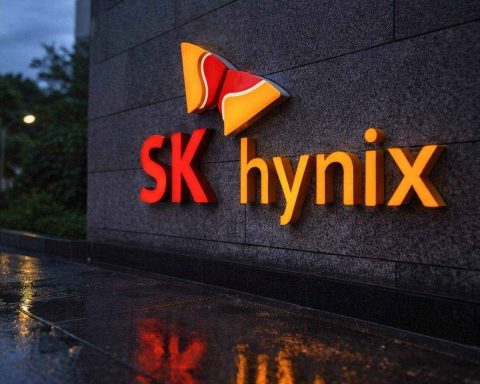Updated: November 28, 2025
Mexico’s approval of foreign pilots to operate domestic Volaris flights has erupted into a full‑scale legal, labour and geopolitical dispute, just as the United States tightens the screws on Mexican airlines with route revocations and pressure on the Delta–Aeroméxico alliance.
In the past few days, the Federal Civil Aviation Agency (AFAC) has confirmed that Volaris, Mexico’s largest domestic carrier, may operate a limited number of aircraft under a “wet lease” scheme with foreign aircraft and crews over the December holiday peak. Pilot unions say the move is unconstitutional, vow legal action, and warn it opens the door to de‑facto cabotage. 1
At the same time, U.S. regulators have revoked approval for 13 routes operated by Mexican airlines and moved against the Delta–Aeroméxico joint venture, only to be partially checked by a U.S. appeals court. 2
Here’s how the Volaris foreign‑pilot controversy and the cross‑border crackdown fit together as of today, November 28, 2025.
What Exactly Did AFAC Approve for Volaris?
According to filings cited by Mexican outlets and AFAC’s own statement, the regulator has authorized Volaris to operate 10 aircraft with foreign crews between December 1, 2025 and January 12, 2026, a 43‑day window that covers the peak Christmas and New Year travel season. 1
Key details from regulatory and media reports:
- Type of deal: A wet lease (“arrendamiento húmedo”) under which Volaris rents aircraft together with their crews from foreign operators.
- Origin of crews: Pilots are expected to come from Malta and Lithuania, via European operators such as Avion Express and Heston Airlines, according to documents referenced by Mexican business press. 1
- Bases and scale: The wet‑leased aircraft will be based at Mexico City International Airport (AICM) and Guadalajara International Airport, operating domestic routes under Volaris flight numbers. 1
- Operational duration and impact: Authorities say that without this 43‑day authorization, around 20 domestic routes would be disrupted and roughly 200,000–220,000 passengers could be affected over the holiday period. 3
Coverage from Mexico Business News adds that the wet‑lease arrangement is tied to compensation from Pratt & Whitney, which has been paying airlines globally to offset capacity lost due to mandatory inspections and groundings of geared turbofan (GTF) engines. 1
In short, AFAC is positioning the approval as a short‑term emergency tool to keep Volaris’s schedule intact while dozens of its Pratt & Whitney–powered jets undergo inspection and repair.
Why Pilot Unions Say the Move Is Illegal
Two of Mexico’s most influential pilot groups — the Asociación Sindical de Pilotos Aviadores de México (ASPA) and the Colegio de Pilotos Aviadores de México (CPAM) — have publicly condemned the permit and are preparing legal steps to challenge it.
Their core arguments, echoed across multiple union statements and national media, are:
- Constitutional conflict:
Unions argue the approval violates Article 32 of Mexico’s Constitution, which they interpret as requiring that aircraft operating in Mexican territory be commanded by pilots who are Mexican by birth. 1 - Civil Aviation Law and technical circulars:
ASPA says the wet‑lease authorization ignores the Civil Aviation Law, its regulations, and the binding circular that governs aircraft leasing (CO AV‑08.3/20), calling the decision “irregular” and outside AFAC’s powers. 4 - “Concealed cabotage” and sovereignty:
By allowing foreign crews to operate domestic legs, unions warn that the decision “opens the door to concealed cabotage” — foreign carriers effectively providing domestic service — and undermines Mexico’s aerial sovereignty. 1 - Labour‑rights concerns:
ASPA and CPAM stress that Mexican pilots are available and certified to fly these routes, estimating that between 100 and 120 national pilots could be displaced by the arrangement. 1
In a strongly worded statement reported by La Jornada, ASPA called the SICT/AFAC decision “a serious failure” of regulatory responsibility that “compromises the country’s air sovereignty,” harms labour rights and sets an “unjustifiable precedent” in Mexico’s aviation legal framework. 4
The unions have formally requested revocation of the permit and signaled they will pursue legal remedies, which could include constitutional challenges (amparos) against the authorities who signed off on the wet‑lease.
Mexico’s Official Response: A “Temporary and Exceptional” Wet Lease
Under mounting criticism, AFAC and the Ministry of Infrastructure, Communications and Transport (SICT) have launched a public defence of the decision through press notes and explanations on X (formerly Twitter), echoed by outlets such as Swissinfo, Infobae and regional media. 3
Authorities’ main points:
- International legal basis:
AFAC cites Article 83 bis of the Chicago Convention on International Civil Aviation, which allows states to delegate certain safety oversight functions for leased aircraft, as well as:- Article 45 of Mexico’s Civil Aviation Law
- Article 4 of its implementing regulations
- The CO AV‑08.3/20 mandatory circular on wet leases. 3
- No violation of Article 32, they say:
Regulators insist that Article 32 applies to Mexican‑registered aircraft, while in this case Volaris is temporarily using foreign‑registered jets under a supervised wet‑lease. As such, they argue, the constitutional requirement for Mexican crews on Mexican‑registered aircraft is not breached. 3 - Not cabotage, according to AFAC:
AFAC stresses that the operation “does not constitute cabotage”, because the flights remain under the control of a Mexican airline, under Mexican authorizations, with no independent operation by foreign carriers. 3 - Passenger protection argument:
The agency says the 43‑day authorization was granted to “guarantee connectivity, service provision and user protection.” Without it, AFAC estimates, 20 domestic routes and around 200,000 passengers would be hit, with negative impacts on tourism and seasonal employment. 3 - No cuts to Volaris staff, on paper:
AFAC further notes that Volaris has agreed with its union not to reduce the size of its workforce or cut pilots’ flight hours during the wet‑lease period. 3
In an explanatory piece, Infobae echoes AFAC’s line, framing the authorization as a “temporary and exceptional” measure backed by both international and domestic law, designed to avoid massive disruption over the holidays. 5
Pratt & Whitney Engine Issues and Volaris’s Capacity Crunch
Behind the legal battle lies a very technical catalyst: engine inspections.
Volaris operates a large fleet of Airbus A320neo family aircraft powered by Pratt & Whitney GTF engines. Those engines have been the subject of global inspections and groundings since 2023 due to manufacturing issues, forcing airlines worldwide to pull aircraft out of service for extended maintenance. 1
Recent coverage notes that:
- Volaris’s wet‑lease authorization is linked to a compensation scheme from Pratt & Whitney to offset capacity lost to inspections. 1
- The carrier requested temporary authorization to lease up to seven aircraft under wet‑lease, complementing the delivery of three new Airbus jets expected in the coming days. 6
- An aviation trade outlet reports that Volaris aims to protect the holiday travel plans of more than 220,000 passengers affected by the inspection schedule. 6
Unions do not dispute the reality of the engine problem, but argue that it does not justify bringing in foreign crews, insisting that local pilots could operate any additional capacity under standard dry leases or other mechanisms consistent with Mexican law. 1
How Many Passengers and Routes Are at Stake?
Across AFAC’s message and subsequent media interpretations, a picture emerges of the potential impact if the wet‑lease were withdrawn:
- 20 domestic routes would be at risk of cancellation or severe disruption in December and early January. 3
- Between 200,000 and 220,000 passengers could see their holiday plans affected, depending on the exact scheduling and aircraft utilization. 3
- Tourism and related employment could face a “negative economic impact” in peak season, according to AFAC’s own impact statement. 3
For context, Volaris transported 7.9 million passengers in the third quarter of the year and operates a fleet of around 152 aircraft, making it Mexico’s leading carrier in the domestic market. 7
That scale explains why regulators are willing to stretch legal instruments to avoid mass cancellations — and why unions fear that what begins as a 43‑day exception could become a precedent for more routine use of foreign crews.
U.S. Crackdown: 13 Routes Revoked and the Delta–Aeroméxico Alliance Under Fire
The Volaris wet‑lease dispute comes amid a broader U.S.–Mexico aviation spat that directly affects Mexican carriers’ access to the U.S. market.
13 Mexican Airline Routes Revoked
On October 28, the U.S. Department of Transportation (DOT) announced that it was revoking approval for 13 routes operated or proposed by Mexican airlines, and canceling all combined passenger and cargo flights by Mexican carriers from Felipe Ángeles International Airport (AIFA) to the United States. 2
Key aspects of the U.S. action:
- The order disapproves specific services by Aeroméxico, Volaris and Viva Aerobus between Mexico City’s two main airports (AICM and AIFA) and several U.S. destinations. 8
- U.S. Transportation Secretary Sean Duffy accused Mexico of having “illegally canceled and frozen U.S. carrier flights for three years” by capping operations at AICM and pushing traffic to AIFA. 2
- The DOT also moved to freeze further growth in Mexican carriers’ belly‑cargo operations from Mexico City and proposed a ban on certain cargo being carried in passenger holds on routes to the U.S. 2
Mexican officials, including President Claudia Sheinbaum, have criticized the U.S. steps as disproportionate, while acknowledging ongoing talks to resolve the dispute. 9
Delta–Aeroméxico Joint Venture in Legal Limbo
Separately, the DOT has sought to terminate the antitrust immunity that underpins the long‑running joint venture between Delta Air Lines and Aeroméxico, arguing that the alliance controls nearly 60% of traffic in and out of Mexico City and harms competition. 10
Recent developments:
- The DOT ordered the alliance to wind down by January 1, 2026, a move that could reshape transborder capacity and pricing. 10
- Delta and Aeroméxico have challenged the order in U.S. federal court, warning of heavy financial and consumer impacts. 11
- On November 12, a U.S. appeals court temporarily blocked the DOT’s breakup order, allowing the joint venture to continue at least into late 2026 while the case is litigated. 12
Mexico Business News notes that the route revocations and pressure on the Delta–Aeroméxico alliance expose gaps in the 1960 U.S.–Mexico bilateral aviation agreement, highlighting the lack of robust dispute‑resolution mechanisms. 13
How the Two Stories Connect
The Volaris foreign‑pilot authorization and U.S. regulatory actions are not formally linked, but they interact in several ways:
- Perception of reciprocity and fairness
As the U.S. accuses Mexico of unfairly restricting U.S. carriers at AICM and AIFA, unions argue that allowing European crews to fly domestic routes sends a mixed message about sovereignty and reciprocity in market access. 4 - Regulatory credibility
AFAC is simultaneously defending its safety and oversight credentials to regain and maintain confidence from both foreign regulators and domestic unions. Its interpretation of wet‑lease rules will likely be scrutinized in any future bilateral talks. - Passenger impact on both sides of the border
While the wet‑lease aims to spare Mexican travelers from cancellations, U.S. sanctions have already curtailed some cross‑border options and could reduce competition, especially from Mexico City, if route revocations persist. 14
What It Means Right Now for Travelers and the Industry
For now:
- Domestic Mexico flights on Volaris
Volaris’s December schedule is expected to operate largely as sold, with wet‑leased aircraft substituting for grounded jets. Authorities insist there will be no layoffs or reductions in pilot hours during the 43‑day period. SWI swissinfo.ch+2infobae+2- However, if unions file successful legal challenges, the authorization could be suspended, forcing last‑minute adjustments.
- U.S.–Mexico routes
The 13 affected routes involve specific city pairs and are already under U.S. restriction; travellers on those segments may need to rebook with alternative carriers or routings. Most existing Aeroméxico/Delta and other Mexican‑carrier services remain operating while the joint‑venture case proceeds. 2 - Industry risk
Airlines and investors now face a more complex regulatory landscape:- In Mexico, courts may be asked to clarify how far AFAC can go with wet leases and foreign crews under the Constitution.
- In the U.S., the outcome of the Delta–Aeroméxico legal battle will influence how aggressively DOT can police cross‑border alliances. 12
What to Watch Next
Over the coming weeks, key developments to monitor include:
- Legal filings by ASPA and CPAM seeking injunctions or constitutional remedies against the Volaris authorization. 1
- Any adjustments or clarifications from AFAC, especially if operational experience during December reveals safety, language or coordination issues with foreign crews. 3
- Follow‑up moves by the U.S. DOT, either expanding or relaxing route restrictions depending on progress in bilateral negotiations. 2
- Court hearings on the Delta–Aeroméxico alliance, which will signal how much latitude regulators have to reshape major joint ventures when political tensions rise. 12
Taken together, the Volaris foreign‑pilot dispute and the U.S. route crackdown underscore how labour rules, safety oversight and geopolitics are colliding in North American aviation. For Mexico, the challenge will be to protect passengers and connectivity without eroding the legal protections and national‑sovereignty principles that its own Constitution — and its pilots — insist must remain non‑negotiable.






